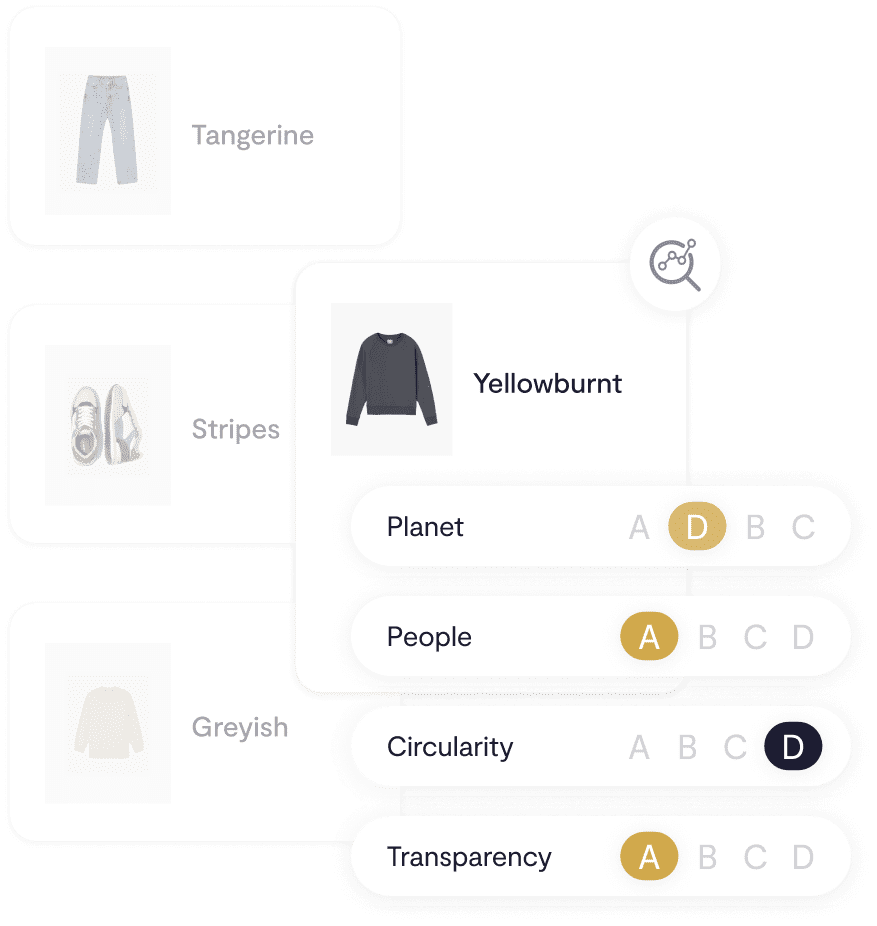The adoption of a code of conduct can be the starting point to establish good labor practices within fashion companies, however, it’s essential to accurately review its content so as not to fall into mere literature. Extending the company’s principles to all the people involved in its activity, whether directly or indirectly, is essential to guarantee that all the agents involved in the business are aligned in terms of environmental, social and economic commitment. Below we tell you what are the benefits that having a code of conduct oriented to practical execution can bring to your fashion brand.
Drafting a code of conduct will specify the rules under which the entire value chain of the brand operates
When it comes to managing a fashion business, the scope of the decisions made has a magnitude that transcends the limits of the company itself. As we mentioned in our article how to integrate sustainability into strategic planning, the creation of a code of conduct will make it easier for the company to define the guidelines that must govern the behavior of its suppliers, contractors and other external collaborators. Therefore, the drafting of this code will specify the rules under which the entire value chain of the brand operates.
We can define the code of conduct as a set of rules through which the company affirms its commitment to complying with human rights in all its operations and in all the countries in which it works. Respecting national laws and the International Labor Standards of the International Labor Organization (ILO) and the care and defense of the environment.
Having a comprehensive view of the different stages your products go through also allows you to extend your labor standards in all these phases
In an industry as relocated as the clothing industry, it’s essential to have a code of conduct that allows companies to take control of what is happening throughout their supply chain. The code of conduct and traceability are closely related, having a comprehensive view of the different stages your products go through also allows you to extend your labor standards in all these phases.
More than twenty years ago, the Clean Clothes Campaign wrote a code of conduct for the fashion industry supported by several international trade union organizations, which included the following principles:
- Freedom of association
- The right to organize
- The right to collective bargaining
- A living wage
- Maximum limit on hours of work
- Healthy and safe working conditions
- Security of employment
- No discrimination
- No forced labour
- No child labour
Any company that operates or sources globally has to deal with social issues that the fashion industry must address. When it comes to improving workers’ rights there are no immediate solutions, textile companies must adopt a comprehensive strategy and carry out continuous reviews to apply rectifications when necessary.
Creation of the code of conduct, what should it include?
The first step in taking control of what happens throughout your company’s supply chain is to create a code of conduct that is exhaustive, credible and honest.
- The code should be written keeping in mind both all workers directly employed by the company, as well as those working in the rest of the supply chain.
- Its content must respect and promote the fundamental agreements of the International Labor Organization (ILO), as well as address all important issues of the work environment that are part of the Universal Declaration of Human Rights.
- To ensure that your content is widely known, it must be communicated between workers and suppliers, in addition to being accessible to anyone who requests its review.
Implementation of the code of conduct, what does it mean for the company?
The real challenge in applying the code of conduct is to improve the company’s working conditions. Its implementation requires the development of systems and procedures for control, verification, collaboration with stakeholders and correction of possible unbalances.
- The managers must receive training to correctly supervise compliance by suppliers with the code of conduct and local regulations. Suppliers should be required to keep adequate and accurate records, while the people carrying out the control must have access to such documentation and to the workers of the supplier company.
- In order to guarantee its credibility and effectiveness, the code of conduct must also include an external verification mechanism. This verification entails contrasting the veracity of the statements made with actual labor practices. This implies that the verification must be carried out by a body independent of the company. The evaluation made by BCOME allows external verification of the labor practices implemented in your brand’s supply chain.
- When problems are detected, companies must work together with factories and other suppliers to correct them. Enough time, opportunities and support must be given to suppliers so that they can comply with the code. A corrective action plan that includes reasonable time frames must be developed and followed. Termination of business relationship with a supplier should only be used as a last resort, when the supplier shows no willingness to solve the problem.
Benefits of the code of conduct, what does it bring to the company?
- Establishes a framework of common behavior. When all the agents involved are governed by the same rules and coexist within the same productive culture, efficiency tends to grow as conflicts and confusion disappear from the workplace.
- Improves corporate reputation. Both in terms of establishing relationships with investors, consumers and other stakeholders, having a code of conduct increases the trust placed in the brand by these groups. Knowing that the company strives to improve the working conditions of all the individuals involved in its activity gives it integrity.
- Helps comply with regulations. Companies can be sued for breaching their agreements, so those companies that implement a code of conduct have a strong incentive to ensure fair treatment of their employees, customers, partners and other stakeholders.
- Attract professional talent. We already mentioned it when we talked about why sustainability should have a place in companies of all sizes, professionals in the industry seek positions that are aligned with their principles. Knowing that you work for a brand that cares for the well-being of all the people with whom it has a relationship is essential to feel safe and fulfilled in your job.
- Promotes social change. All workers should carry out their activity in the same conditions of respect and equality. Unfortunately, the fashion industry, and in particular the growth of fast fashion, is one of the main reasons for the labor deficiencies in the textile sector. By adopting a code of conduct, your company can help make the world a better place for everyone.
The creation of well-defined codes of conduct is emerging as an essential requirement to guarantee the success of the company. This is demonstrated by some big brands such as Veja or Nudie Jeans.
When evaluating the sustainability index of a brand, at BCOME we value the application of a code of conduct for manufacturers and suppliers that guarantees safe and ethical working, social and animal conditions. Our integrative vision of sustainability drives us to analyze even those aspects that the end customer doesn’t see reflected in the product. Because sustainability is also about protecting a fair job for the people involved in the supply chain, do you want to be part of this great change? We can help you!






